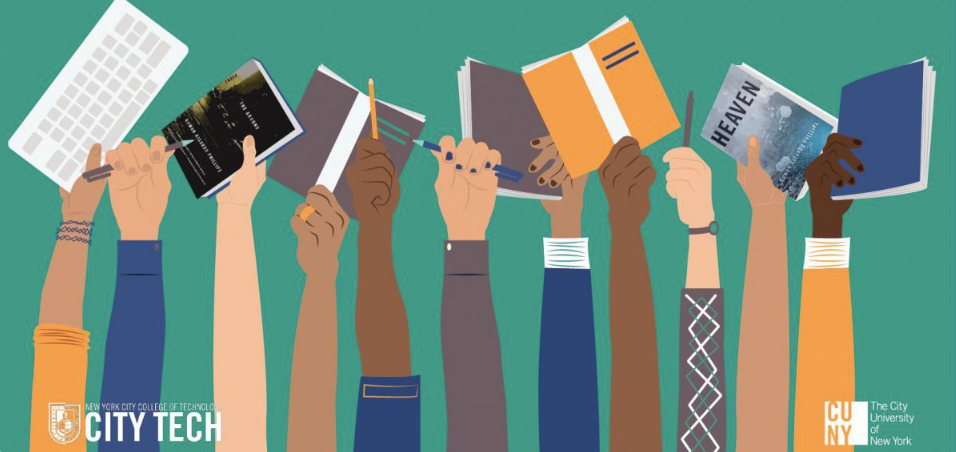As mentioned in previous posts, our theme for Open Pedagogy this semester has been Portfolio curation– the process of selecting, organizing and updating the work featured on one’s Portfolio/ ePortfolio. This week, as we return from Spring Break and inch toward the close of the semester (what?… Continue reading this post
Category: Community&Collaboration
In the Spotlight: City Tech Super HERO
This week we’re spotlighting the City Tech Super HERO’s OpenLab site. Who is our super hero? Well, she was “born in 1980 as Healthkit Educational Robot (HERO).” As the site goes on to note:
… Continue reading this post“For the next 15 years she helped countless number of students in colleges and universities across the country learn about Computer and Robotics Technology.
In the Spotlight: Open Pedagogy on the OpenLab
This week, as we prepare for our second Open Pedagogy Event of the semester, we’d like to draw your attention once again to our in-house site, Open Pedagogy on the OpenLab. This site operates as a forum where OpenLab community members can ask questions and stimulate discussion related to teaching and learning on the OpenLab and in open digital environments more generally.… Continue reading this post
In the Spotlight: The City Tech Literary Arts Festival
This week, we’re spotlighting the City Tech Literary Arts Festival’s OpenLab site. The Literary Arts Festival is “a yearly celebration of literary accomplishments among City Tech’s students, staff, faculty, and community.” The Festival features both a writing competition and a featured writer who is invited to speak.… Continue reading this post
In the Spotlight: the City Tech Library’s Copyright Module

This week we’re spotlighting the City Tech Library’s Open Educational Resources (OER) Copyright Module. The module “covers copyright basics, gives an overview of creative commons licenses, and offers some best practices for using copyrighted and library licensed materials.” This site is an invaluable resource for faculty teaching OERs specifically and working in open digital spaces more broadly.… Continue reading this post
In the Spotlight: Open Pedagogy on the OpenLab
This week, as we prepare for our first Open Pedagogy Event of the semester,
we’d like to draw your attention once again to our in-house site, Open Pedagogy on the OpenLab. This site operates as a forum where OpenLab community members can ask questions and stimulate discussion related to teaching and learning on the OpenLab and in open digital environments more generally. … Continue reading this post
In the Spotlight: First Year Learning Community Badges
When enrolling at City Tech, freshmen and transfer students can choose to participate in learning communities. As noted in the First Year Learning Communities (FYLC) OpenLab Site, FYLCs are “two or more courses with the same students enrolled, linked with an interdisciplinary theme, providing an innovative way for students to learn and form bonds with the college.… Continue reading this post
In the Spotlight: 28,000 Members and Counting!
Last semester, the OpenLab hit an impressing milestone, welcoming its 25,000th member at the start of the fall. This term, the OpenLab reached an even more impressive 28,000 members: we continue our retrospective series here, looking back at how the OpenLab has grown and evolved since its inception in 2011.… Continue reading this post
Holiday Greetings from the OpenLab!
Greetings from the OpenLab and congratulations to all on the closing of another successful semester!
While our weekly “Spotlight” blog series will go on hiatus until the Spring semester, we wanted to remind you of the sites we featured this past semester and encourage you to check them out if you haven’t already done so.… Continue reading this post
In the Spotlight: Girls Who Code
This week we’re spotlighting the Girls Who Code club. Girls Who Code is a FREE after-school program for 6-12 grade girls and female college freshman. The aims of the club are to empower women by building technical skills, knowledge, and confidence, while also growing community among those with interest in tech.… Continue reading this post






